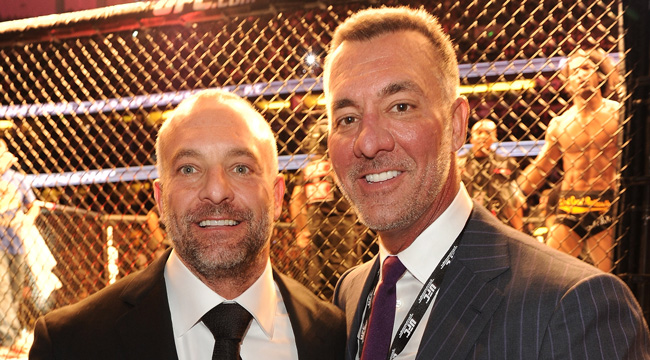
Last month, ESPN revealed that former MMA fighter and current Oklahoma representative Markwayne Mullin was pushing to introduce an amendment to the Muhammad Ali Boxing Reform Act of 2000 that would put MMA under its umbrella. The attempt is a controversial one, as many of the issues that the act deals with don’t really exist in MMA, and MMA fans know first hand how poorly rules and regulations from boxing work when ported into a different sport. The much-reviled 10-point must system for judging and inadequate eye poke rules come to mind.
But with support for the amendment growing in Congress, the UFC has taken steps to fight it. According to PR website O’Dwyters, it has hired Washington D.C. firm Farragut Partners to “communicate with Congress its position on the Muhammad Ali Act.” This isn’t the UFC’s first experience with lobbying, as the company spent over $2 million working to get the ban on MMA lifted in New York state.
So what exactly is in the Ali act? It prevents promoters from managing fighters and demands that promoters divulge the amount of money they’re making to those on their cards. It also requires third party sanctioning bodies to determine fighter rankings and who gets title fights. Last but not least, it sets a limit on all fighter contracts to one year.
So it’s not a surprise that the UFC doesn’t like any of this. The third party sanctioning situation is already a giant mess in boxing and isn’t really required for the UFC, where there are few examples of contenders being overlooked. And while the UFC obviously doesn’t want to open its books to every fighter on every card, it’s undoubtedly the one-year contract maximum that has UFC execs worried.
The UFC likes to lock its fighters down in six fight, three-year contracts. There are often exclusive negotiation periods attached to the end of these deals that themselves can last up to a year. Dropping deals down to a 12-month stretch would completely change the sport and open things up for other organizations and promoters to try to snatch up top UFC talent.
Then there’s the question as to whether the government should even be forcing more regulations onto mixed martial arts. They don’t regulate any other sport, so what gives them the mandate to keep determining how mixed martial arts is run? As ESPN’s Thomas Hauser put it, “Boxing is allowed to exist as an exception to state laws against violence on the premise that it will be regulated in a manner that protects the combatants physically and financially.” The Muhammad Ali Act was a response to rampant abuse of fighters by promoters.
Looking at the UFC now, where the company brags about pulling in $600 million in revenue while still paying fighters $8,000 to show and $8,000 to win, the argument can be made that something has to be done to protect these men and women from being financially taken advantage of. Whether expanding the Muhammad Ali Act will accomplish this is a big question, one that will apparently take place in Congress between politicians, fighters…and lobbyists hired by the UFC.
